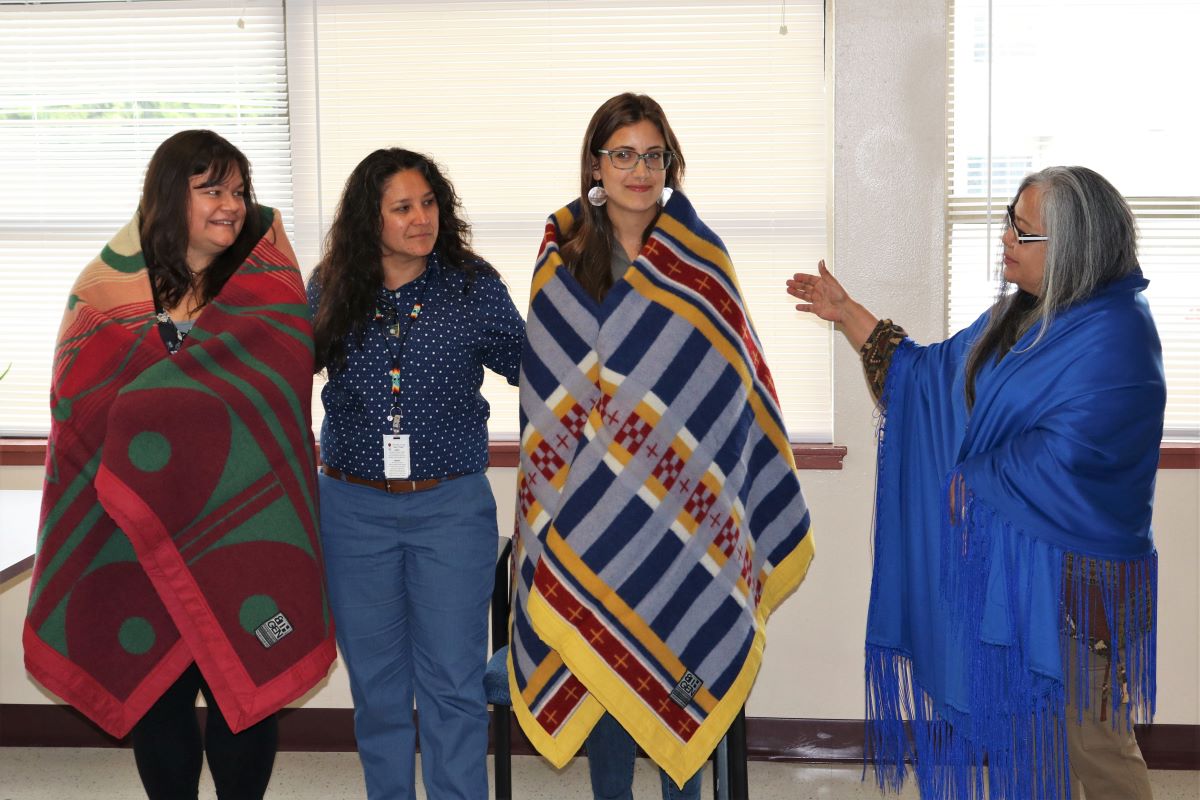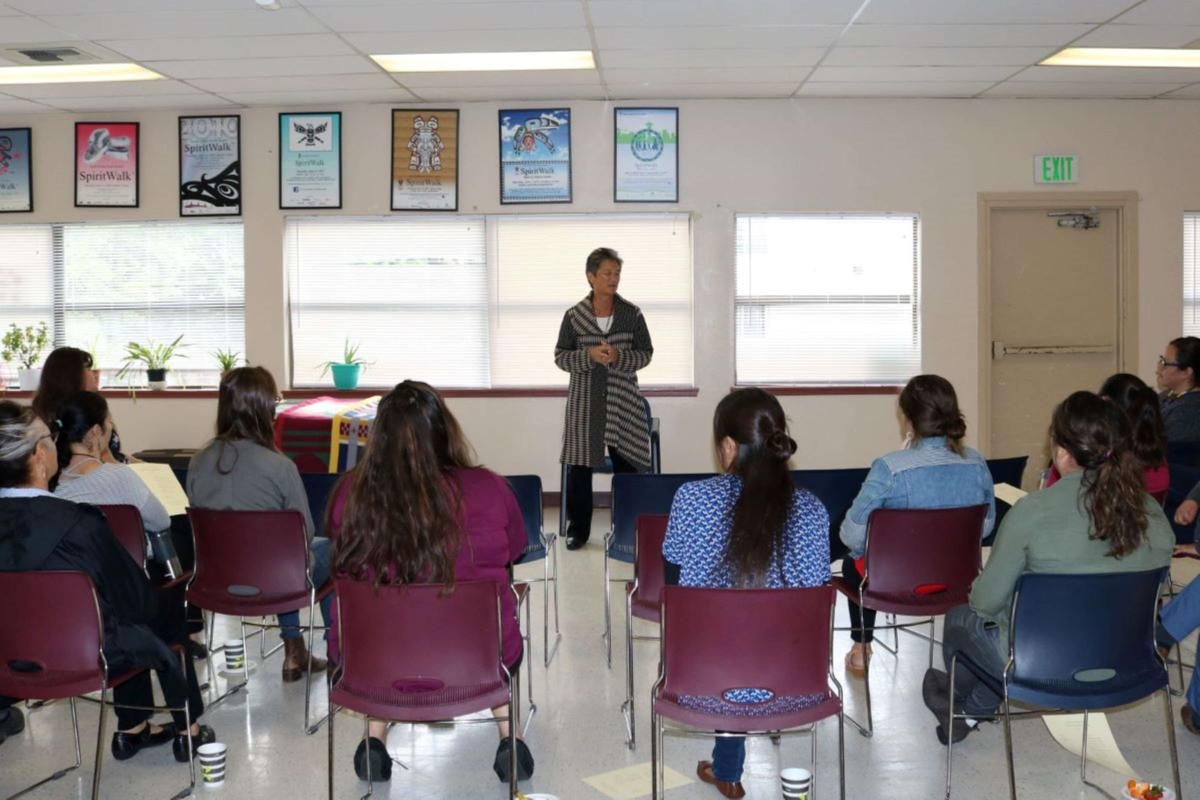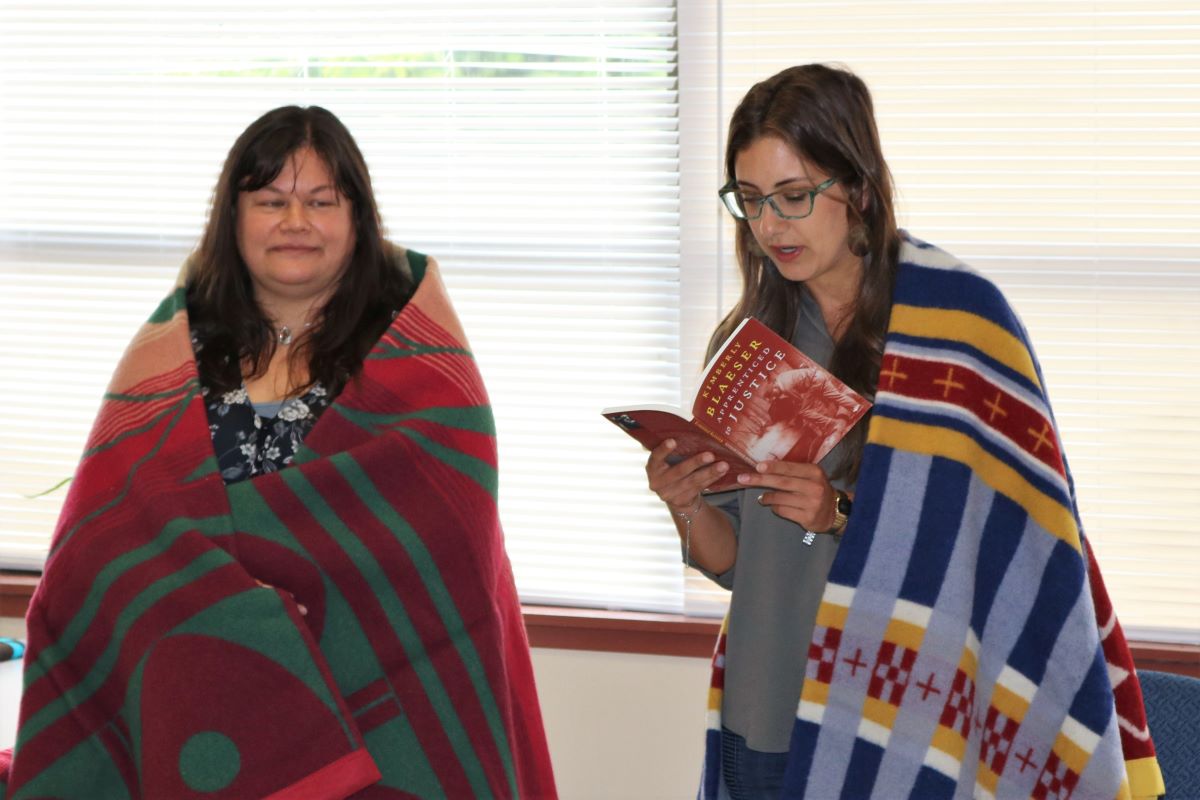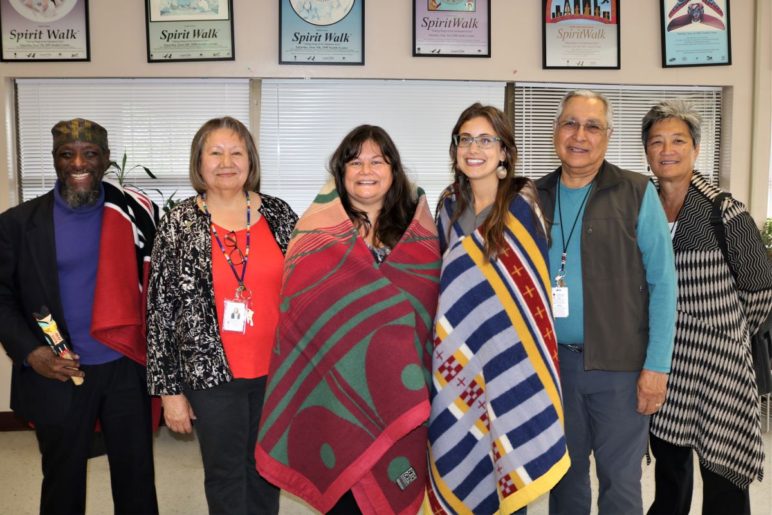Seattle Indian Health Board honored Lynette Roberts and Alison Rath at a blanket ceremony after graduating from University of Washington’s Master of Social Service (MSW) program and completing their internship at Seattle Indian Health Board.
Seattle Indian Health Board acts as a practicum site for UW’s MSW internship program and provides students a unique opportunity to train in federally qualified community health center with a team of health professionals who specialize in culturally attuned care for its patients.

Did you know?
In many indigenous cultures, a blanket ceremony is held to show respect for a person’s contributions to the community. The blanket symbolizes the community’s love and protection for the person who is wrapped in it.
The Ceremony
The ceremony started with a song, welcoming and opening remarks, prayer, and smudging of the graduates. Val Kalei Kanuha, Assistant Dean at the Office of Field Education, UW School of Social Work, and Khalfani Mwamba, Lecturer at the Office of Field Education, both provided words of wisdom, and Kanuha sang a traditional Hawaiian song.
The graduates were wrapped with wool blankets (from Eighth Generation, of course) by Karol Parker, SIHB Clinical Social Worker, and after, they shared about their experience and paid respect to their teachers with gifts.
The ceremony closed with a prayer from Lawrence Parker, SIHB Field Instructor.

“Knowledge doesn’t come from books. It comes from our ancestors.”
Val Kalei Kanuha, Assistant Dean, Office of Field Education, UW School of Social Work
SIHB is dedicated to sharing knowledge with the next generation of health professionals
Along with our partnership with UW’s School of Social Work, Seattle Indian Health Board provides jobs and internships to healthcare professionals interested in working in a setting that provides culturally attuned care for its patients.
In partnership with Swedish Family Medicine Residency, Cherry Hill, Seattle Indian Health Board also has a Family Medicine Residency Program. Three-quarters of graduates from the residency program go on to work in underserved communities, with half going on to work in Indian Country.
Through jobs, internships, and programs like the UW MSW Internship Program and Family Medicine Residency, we carry out our obligation to our elders and past leaders by sharing our knowledge with the next generation of health professionals.

“Are you coming here to visit or are you here to make change happen?”
Lynette Roberts, graduate












